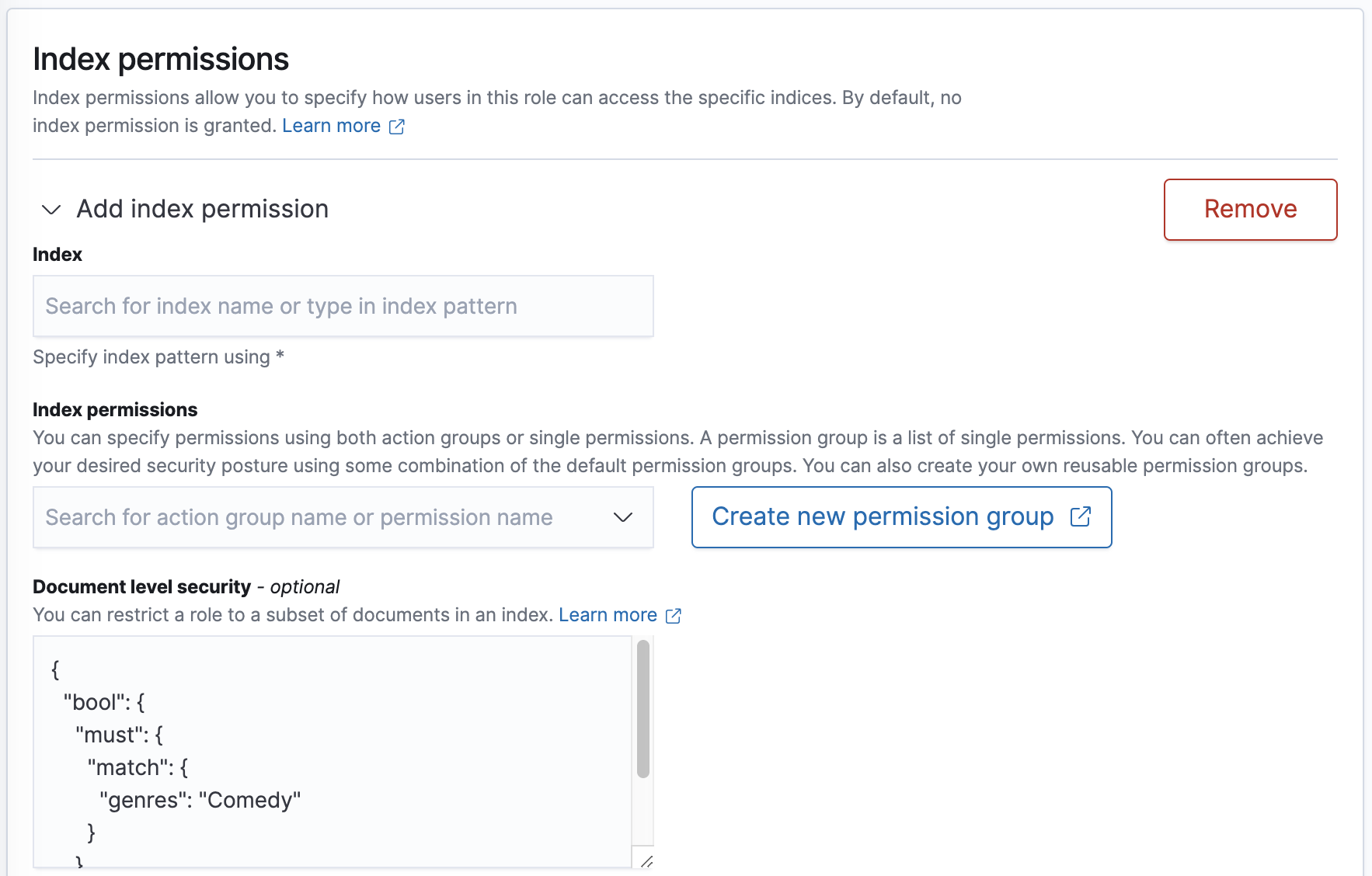Document-level security
Document-level security lets you restrict a role to a subset of documents in an index. The easiest way to get started with document- and field-level security is open Kibana and choose Security. Then choose Roles, create a new role, and review the Index permissions section.

Simple roles
Document-level security uses the Elasticsearch query DSL to define which documents a role grants access to. In Kibana, choose an index pattern and provide a query in the Document level security section:
{
"bool": {
"must": {
"match": {
"genres": "Comedy"
}
}
}
}
This query specifies that for the role to have access to a document, its genres field must include Comedy.
A typical request to the _search API includes { "query": { ... } } around the query, but in this case, you only need to specify the query itself.
In the REST API, you provide the query as a string, so you must escape your quotes. This role allows a user to read any document in any index with the field public set to true:
PUT _opendistro/_security/api/roles/public_data
{
"cluster_permissions": [
"*"
],
"index_permissions": [{
"index_patterns": [
"pub*"
],
"dls": "{\"term\": { \"public\": true}}",
"allowed_actions": [
"read"
]
}]
}
These queries can be as complex as you want, but we recommend keeping them simple to minimize the performance impact that the document-level security feature has on the cluster.
Parameter substitution
A number of variables exist that you can use to enforce rules based on the properties of a user. For example, ${user.name} is replaced with the name of the current user.
This rule allows a user to read any document where the username is a value of the readable_by field:
PUT _opendistro/_security/api/roles/user_data
{
"cluster_permissions": [
"*"
],
"index_permissions": [{
"index_patterns": [
"pub*"
],
"dls": "{\"term\": { \"readable_by\": \"${user.name}\"}}",
"allowed_actions": [
"read"
]
}]
}
This table lists substitutions.
| Term | Replaced with |
|---|---|
${user.name} | Username. |
${user.roles} | A comma-separated, quoted list of user roles. |
${attr.<TYPE>.<NAME>} | An attribute with name <NAME> defined for a user. <TYPE> is internal, jwt, proxy or ldap |
Attribute-based security
You can use roles and parameter substitution with the terms_set query to enable attribute-based security.
User definition
PUT _opendistro/_security/api/internalusers/user1
{
"password": "asdf",
"backend_roles": ["abac"],
"attributes": {
"permissions": "\"att1\", \"att2\", \"att3\""
}
}
Role definition
PUT _opendistro/_security/api/roles/abac
{
"index_permissions": [{
"index_patterns": [
"*"
],
"dls": "{\"terms_set\": {\"security_attributes\": {\"terms\": [\"${attr.internal.permissions}\"], \"minimum_should_match_script\": {\"source\": \"doc['security_attributes'].values.length\"}}}}",
"allowed_actions": [
"read"
]
}]
}